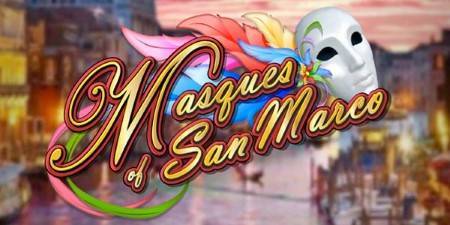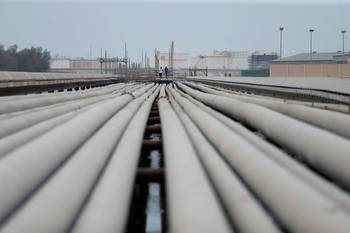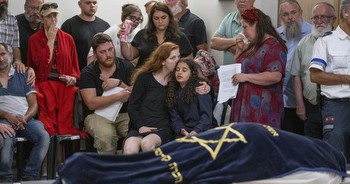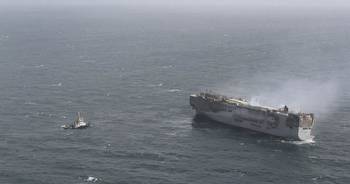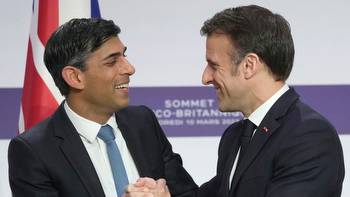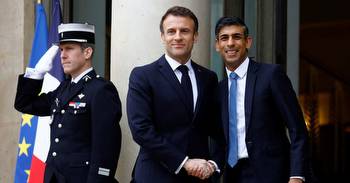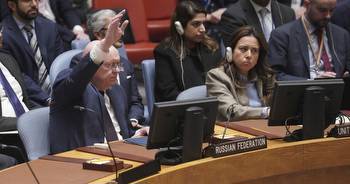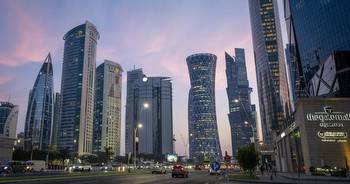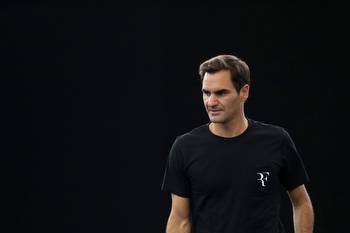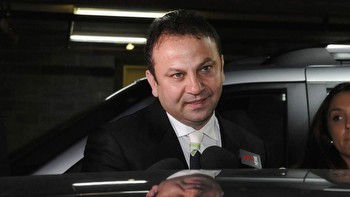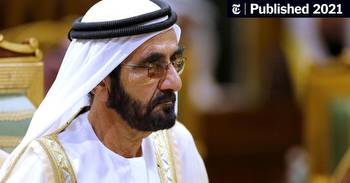The Kingpin Who Kidnapped Migrants for Ransom
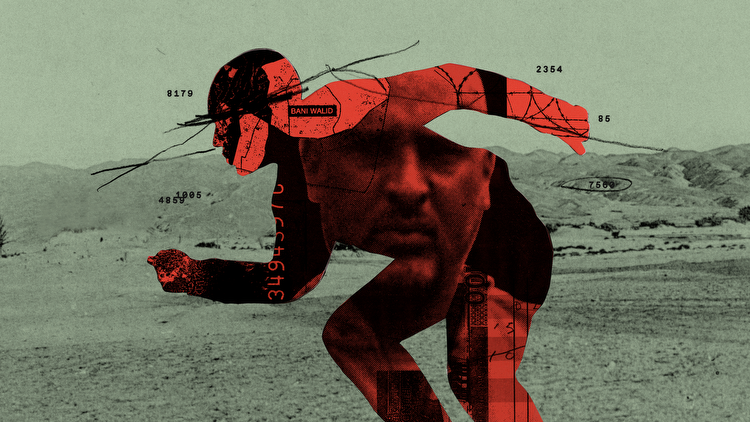
Girma’s story is not unusual: many people who were held captive by Kidane never crossed the sea. Although Estefanos estimates that Kidane did put some fifteen thousand migrants on boats, the financial core of his business seems to have been kidnapping and extortion, not smuggling.
It’s difficult to know exactly how profitable Kidane’s operation was. His business operated freely, because, in part, Libya fell into a state of anarchy after the 2011 revolution. But this political instability also caused difficulties for traffickers. ISIS fighters in the region frequently took Kidane’s captives hostage themselves. Kidane paid ransoms to get his captives back, then imposed the cost on their families—plus interest. Captives were often traded among traffickers. The result was that many migrants had to pay multiple ransoms before being set free.
Despite the tumult of operating in Libya, money flowed steadily to Kidane. He was becoming a kingpin, but he also remained a parasite: to keep his operation in Bani Walid going, he needed to continue paying off the Diab family. According to Estefanos, Kidane gave around forty per cent of each migrant’s ransom to the Diabs—about two thousand dollars for the typical “fee.” Kidane spent twenty per cent on other costs and kept forty per cent for himself. When Kidane’s racket was at its peak, around 2017, it was generating perhaps as much as ten million dollars a year. An officer at Interpol recently told me that Kidane had amassed “significant wealth” through extortion, but it was difficult to say precisely how big the fortune was—because Kidane had hidden much of it.
Betting is illegal in the U.A.E., but Kidane’s fondness for gambling followed him there. Other Eritreans remember him playing billiards for high stakes in a club inside Eritrea’s modest consulate. (Kidane never had to hide from the Eritrean government or from its foreign diplomats, with whom he apparently maintained a cozy relationship.) He once lost between ten and twenty thousand dollars playing billiards at the club in a single day.
Kidane also arranged high-stakes card games in private rooms in Dubai. An owner of a speakeasy frequented by Ethiopians and Eritreans observed Kidane setting up such games. (The bar owner did not wish to be named, but his closeness to Kidane was vouched for by other Eritreans.) The bar owner said that Kidane’s stake would be kept, in cash, by a driver who waited outside in his car. Kidane drank, but never to excess—when playing cards, he’d nurse a glass of Johnnie Walker Black Label.
In one card game at the Sun & Sands Sea View Hotel, an unprepossessing three-star hotel near the Dubai airport, Kidane lost about a hundred thousand dollars. The speakeasy owner recalled that, whenever Kidane lost at cards, “he never got angry—he just laughed.” One of Kidane’s regular opponents at the card table is said to have used some of the money he made from beating Kidane to build a gaudy hotel in Uganda, on the shores of Lake Victoria.
Though Kidane could be socially awkward—he found it difficult to make a joke, associates say—he was proud of his success, and used his money to cultivate celebrities. He became friends with several prominent Ethiopian and Eritrean performers. Sometimes he paid for someone he admired to travel to Dubai. The speakeasy owner remembered Kidane bragging that he had bought a plane ticket for Daniel Teklehaimanot—an Eritrean cyclist who’d competed in the Olympics—and had paid for him to stay in the hotel at the Burj Khalifa, the world’s tallest building. (Teklehaimanot recalls meeting Kidane in Dubai around 2016, but says that Kidane did not pay for him to be there.)
Several years ago, Kidane is said to have brought Tarekegn Mulu, a traditional Ethiopian singer, to do a set at the Dubai Palm hotel. Kidane paid him thousands of dollars and presented him onstage with a gold necklace. The artists he sponsored often performed songs whose bespoke lyrics celebrated Kidane’s exploits, much in the way that Mexican narcocorridos heroize members of drug cartels. Estefanos knows Eritreans who attended these parties, and she told me that the lyrics to the songs performed in the Dubai Palm “were, like, ‘Kidane, my brother,’ ‘Kidane, the king,’ ‘Kidane, the hero.’ ” Estefanos added, “The more they sing in his honor, the more money they get.”
The policy has been an abject failure, in terms of both saving lives and reducing the number of migrants. The Libyan Coast Guard is cruel and easily bought off with bribes; indeed, some Coast Guard officers have sold migrants back to traffickers—or imprisoned, abused, and extorted them in compounds much like Kidane’s. Without such corruption, Kidane’s business could not have flourished; Moussa Diab’s trafficking empire emerged, in no small part, from relationships that he established with Libyans in the government and the military.
The International Criminal Court has yet to bring charges against anyone involved in the trafficking trade in Libya. Meanwhile, Italy—the first destination of many migrant boats—and several other European countries have pursued the bosses of smuggling networks, sometimes with embarrassing results. As Ben Taub reported in this magazine, an Italian investigation led to the imprisonment of an Eritrean who was believed to be a major smuggler; he turned out to be an innocent man with the same name as the criminal.
Kidane may have been of less immediate interest to prosecutors in Europe because his main operation, in Bani Walid, was at one remove from the sea crossings, but his crimes were nevertheless egregious. Many of his victims, after being released from the warehouse, did eventually make it to Europe, and for prosecutors there who cared to listen to the stories of Eritreans and Ethiopians it was possible to construct a vivid and disturbing criminal case against Kidane. The Netherlands has a significant Eritrean community; according to an Eritrean source familiar with Kidane’s network, the Dutch police first began to ask questions about Kidane a decade ago. But officials at Interpol’s unit on human trafficking and migrant smuggling told me that they didn’t begin receiving intelligence reports about Kidane until October, 2019. By that time, he had been operating on the migrant trail for years.
At one point, about a hundred captives in Bani Walid, including Bedru, fled into the desert. Guards pursued the escapees with guns. Doctors Without Borders, which was operating a hospital in the town, later reported that at least fifteen migrants were shot and killed, and dozens were injured. Bedru, whose leg was hurt in the escape, crawled to a nearby mosque, and eventually travelled toward the coast. He was now focussed on escaping traffickers, rather than making it to Europe. Two months later, he was in a U.N. camp in Libya. He was soon repatriated on a flight to Addis Ababa.
Now his former jailer was walking past him in a humdrum Addis Ababa neighborhood. Bedru could not have been more surprised if he’d seen a Bengal tiger strolling by. He followed Kidane on foot. Every time Bedru caught another glimpse of Kidane, he became more confident in his identification. Kidane was wearing a hoodie, jeans, and sandals, just as he had in Bani Walid. Eventually, Kidane stopped at a phone store. Bedru saw two police officers nearby, a man and a woman, and told them why they should arrest Kidane. The female officer knew about the dire situation in Libya’s migrant camps and explained it to her colleague. Bedru then walked up to Kidane and tapped him on the back. Kidane spun around and was shocked to see someone he recognized. “What can I do for you?” he asked Bedru.
The officers stepped in and arrested Kidane, though they didn’t handcuff him. Kidane pleaded his innocence. Then he tried to bribe the police officers, offering them about five hundred dollars. The offer was refused. Kidane, panicked, said that he could get the officers a lot more money, and also take care of Bedru; if they dropped the matter, they could later name their price. Again, he was turned down. Bedru realized that it was the first time he had seen Kidane without a weapon or armed guards. The power in their relationship had shifted. “He was afraid of me,” Bedru recalled.
